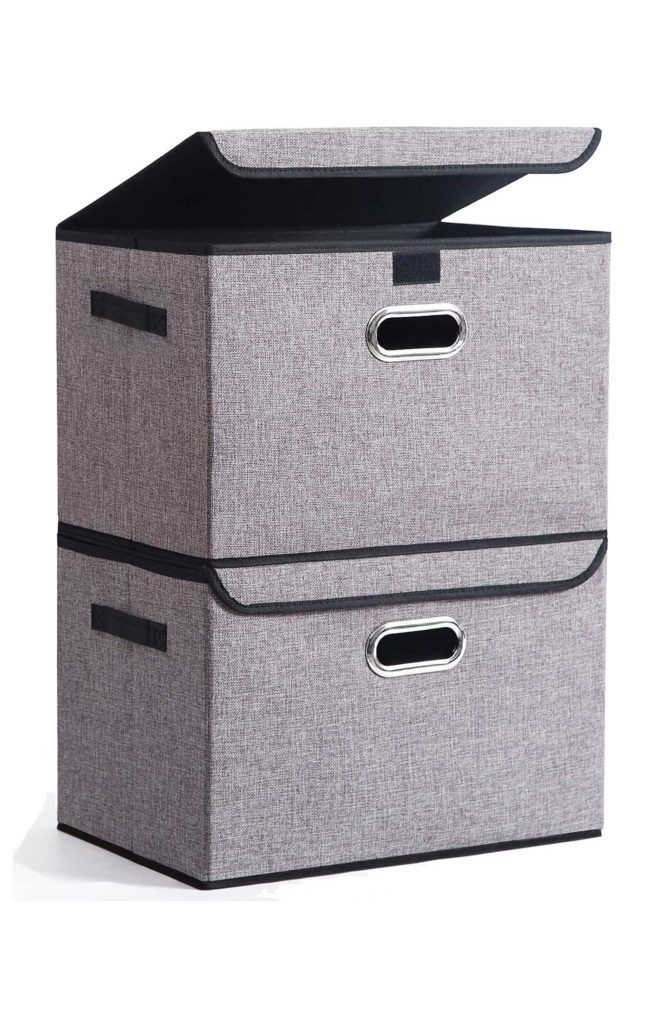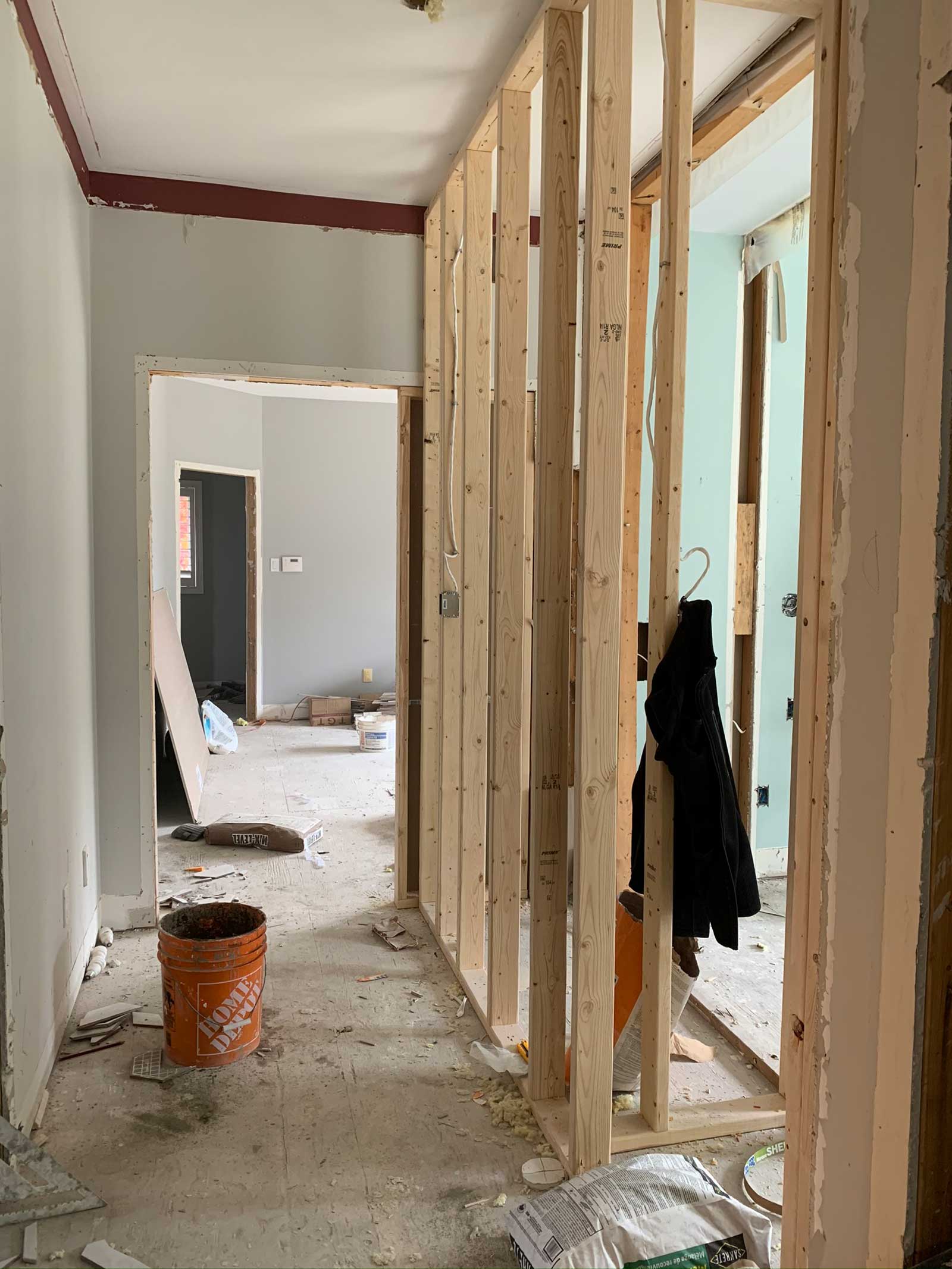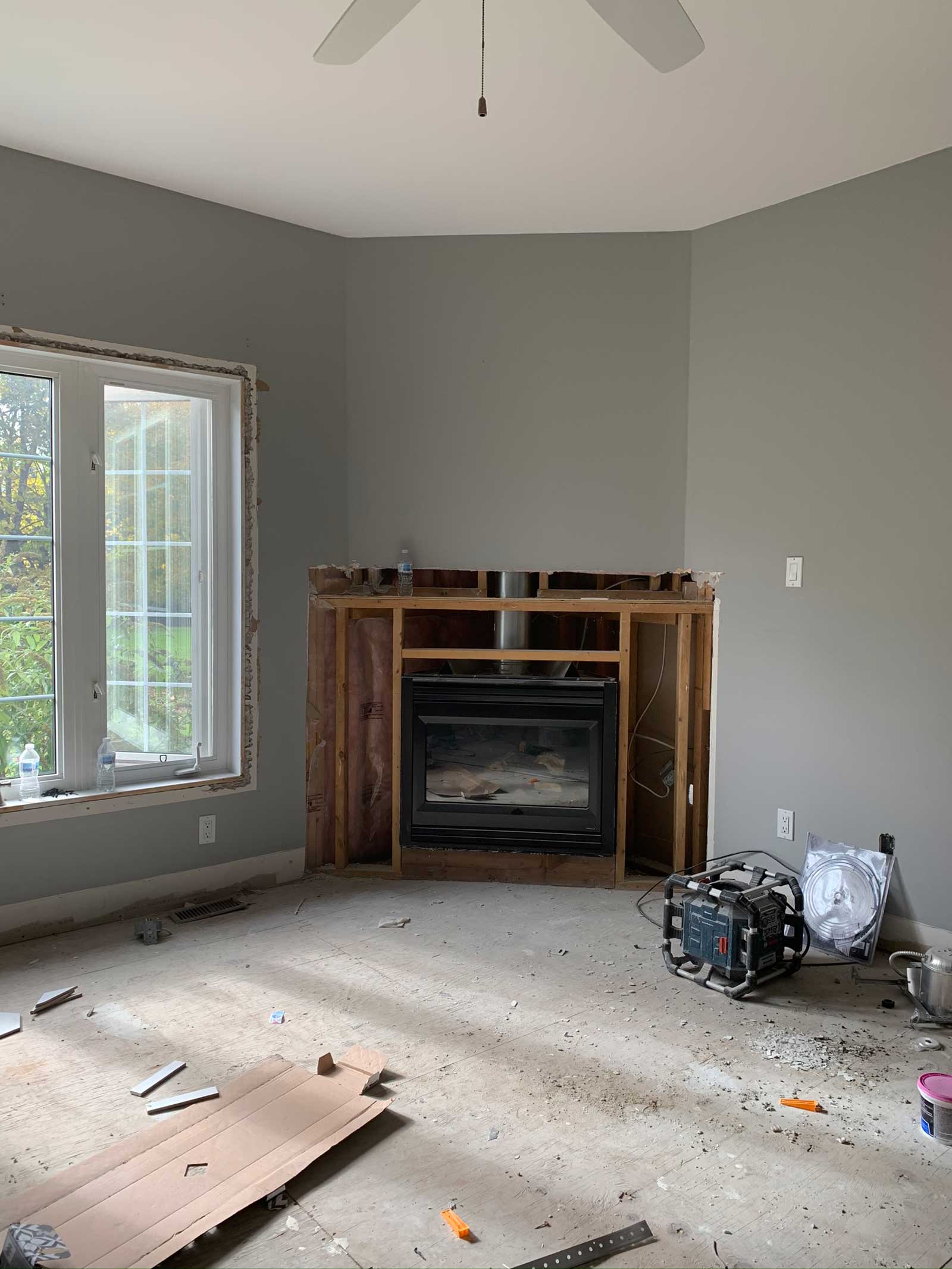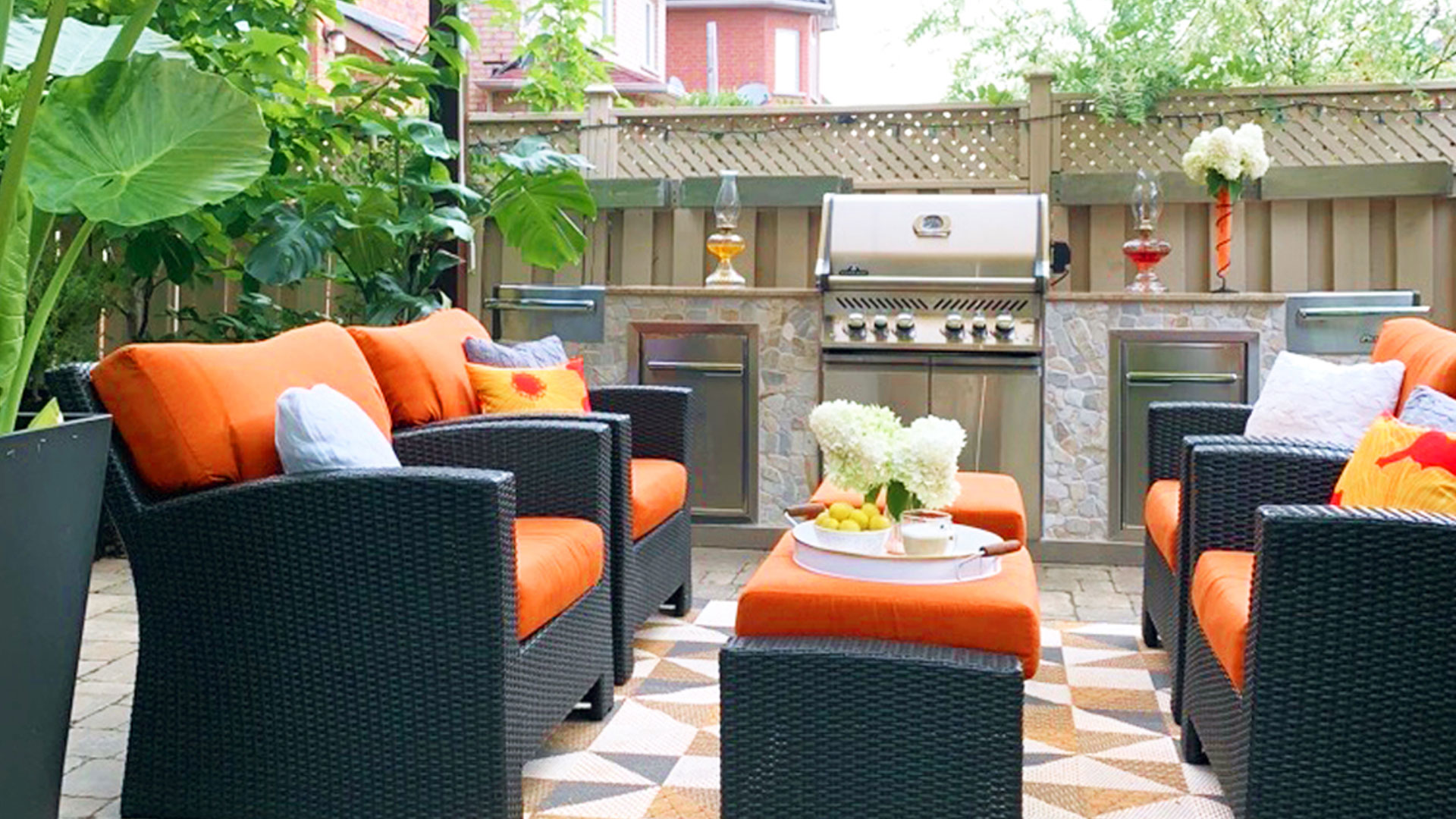That first house is exciting! You’ve worked hard to finally have a place of your own to call home. As time progresses, life evolves and needs change. This home who housed you and your spouse, now welcomed a new baby, and another. The family is growing and the two-bedroom, one-bath home that you fell in love with just isn’t as exciting as the first day you walked in. Space and function are suffering because of this new lifestyle.
So what do you do?

One question we often hear from homeowners when they come to us is that they don’t know if they should be moving or renovating their homes, ‘we can’t decide what we should do!’
Renovate your home or move?
The only person that can really answer this question for you is YOU! But what we can do is offer you tips on how to come to a decision.
Evaluate your lifestyle and needs
With a lot of us at home, it is the perfect opportunity to tackle this question that may have been on the back on your mind. Being at home you have had more time to become reacquainted with your spaces, and in doing so, things that may have been ignored because ‘we just didn’t have the time’ can’t be ignored anymore.
Take this opportunity to declutter. Regardless of whether you decide to move or renovate, decluttering is an important exercise to help in the process of truly understanding what you want out of your space. When you live in a home for a while, things start to accumulate. The truth is, we have busy lives. How many times have you told yourself, I’ll get to that later and never do. Reorganize and purging will help you understand how much space you really need. Maybe it’s just the disorganization and accumulation of stuff that is making you feel that there is no fix to your current home.
Here are a few organizers we love to use in our spaces to manage the clutter.
Jewelry Organizer Food Storage Container Storage Box
Once you have lightened the load, it is important to sit down and take a look at your needs, what works and what doesn’t work in your space, before you make any decision. Write it down in a side-by-side list comparison. Also, consider what you need now, and how do you think you will need your space to function in 5 or 10 years from now. This will help you to prioritize what you want to renovate, or what you want in a new home.
Comparative costs of moving vs. renovating
Consider the pros and cons of both options and figure out what you want in a new home as well what you need to change in your current home. Moving can be expensive, but so can renovating depending on what you want to change. It can be finishing your basement to create more useable space, or adding an extension to the house. It is important to start doing your research. Before you decide to either move or renovate, talk with professionals to help you make the right decision.

Considering selling your home
If you are considering the move, this first thing you should do is contact a real estate agent. They will be able to show you what is out there on the market within your budget and needs. Keep in mind you may not get exactly what you want, and you may have to compromise on certain requests. With high markets like Toronto, you could be taking on a much higher mortgage to get what you want.

Cost Factors to consider when selling:
- When selling your home you will need to get your property ready to put on the market and find ways to boost the sell-ability of your home. Depending how outdated your home is, this may involve minor repairs, cleaning and staging rooms throughout the house, or it might even involve putting in a new kitchen.
- Real estate fees typically range from 5-7% of your home’s purchase price.
- Moving Cost such as hiring movers and buying items for packing.
Considering renovating your home to stay
If you are considering renovation, an interior designer will be able to help you space plan and determine whether or not you can get more functionality out of your current home. Once there is an understanding of what should be renovated, it is time to get some estimates on what the project will cost with the help of a contractor, and determine what other professional need to get involved, such as an architect or engineer. Home renovation requires careful planning for a successful execution and not everyone is capable of taking it on themselves. We see time and time again, homeowners trying to save money by cutting corners and it ends up costing more than if they hired someone to help with the project. Renovations can be stressful and it is important to take that into consideration; which is why pre-planning is extremely important, and more so, hiring the right people to help you through it. It makes all the difference in the world when you have the right team to get the job done. Having as much as possible prepared before construction will help to reduce surprises during construction, and keep you on track with the budget.
Milton Bungalow Residential Construction Milton Bungalow Residential Construction
Cost factors to consider when renovating:
- Designer/Architect/Engineer fees
- Permit Drawings & Permit Fees
- Labour & Installation
- Furnishing
- Lighting
If you have decided to stay and do those renovations, we find clients tend to hold themselves back on designing a space that really represents them. The constant concern with home owners, is the ability to recoup costs for a future sale. Sometimes this can hinder the design because the homeowner becomes fixated on what should go in there solely based on the resale value, as opposed to making their home theirs. We have reached out to our friend Barbara De Angelis to provide a Real Estates perspective on what actually is valued in the eyes on the home buyer. You can read our blog ‘What should you renovate when thinking of selling your home’ where Barbara goes into detail where your investment should be allocated based on buyers’ demands.









Leave a Reply
You must be logged in to post a comment.